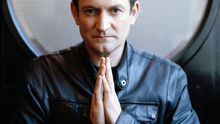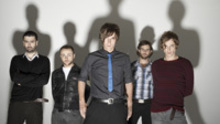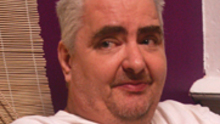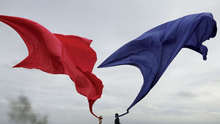In 1977 there were many things happening in the world of music. One was punk, but another was PMS. While there is little left of the ground breaking, life-affirming genre full of anti-establishmentarians and frenzied upstarts, the Liverpool-based BBC radio show is still alive and kicking and is possibly one of the most ‘punk’ segments currently floating around Britain’s airwaves.
Currently going under the guise of Pure Musical Sensations (but also being known and Post Millenial Sounds and Pop Music Sucks), it covers world music and jazz and dance and rock and folk and metal and all things nice and spicy. There was a time, as Rockaround, when it was the northwest’s regional rock programme, but millennial rebranding and a later time slot have allowed the show to expand in style and playlist.
Roger Hill has been presenting the show for 25 years and has been ably assisted by primetime DiS scribe Joe Shooman on the production desk for the past five years. We talk to the duo about the hard times and the good times, and all the bits in-between.
PMS is so established after 29 years, but after all this time how does your show fit into the BBC’s current agenda?
Roger: The programme was begun about three BBC agendas ago – it maybe wouldn’t be commissioned today. There’s a current agenda for local radio, which is struggling to effect change, and we are part of that whilst we’re also part of the older tradition of broadminded individualism. The overall BBC agenda is about justifying a public broadcasting system in the 21st century. On that radar we’re a very small and maybe hard-to-classify blip. We’re always on the watch for potentially dangerous flak from that quarter.
Broadcasting at midnight for two hours on a Sunday night to Monday morning, you are in a late slot. A lot of people might be in bed, ready for the next week’s work. Does that bother you at all?
Joe: We’d love to have an earlier slot, of course, but being on late actually means we can explore horizons we’d maybe have to rein in if we were on at prime time. The advent of radio on demand, also, means the show’s archived and available online any time for the week immediately following the programme. Interestingly, too, thanks to the time differences, when we broadcast live we’re the breakfast show of choice for some of our listeners in Los Angeles!
That ties in perfectly to the sister article from KCRW [link], and I didn’t even tell you to say that! You mention that you can explore horizons, but how do you choose what tracks are played?
Roger: We know there’s so much that doesn’t get played on daytime radio and that’s our patch. After that we’re looking for balanced programmes with a huge diversity of sounds. We don’t go for stuff others are playing and the tracks picked are usually the less-obvious ones. Everyone has a kind of music sewn into them by temperament, experience and association. The music I play will, more or less, has a noisy splendour or a calm majesty or a quirky creativity that marks it out from the mass of other sounds on offer. It will speak of a world so wide and enriching that mere entertainment and narrow listening habits will be put into an enhanced perspective.
Joe: If they’re good, and inventive, and they fit. It’s a hard question best answered by looking at the playlists! We listen to everything we get sent, though. Generally we do try and play things you wouldn’t hear on mainstream radio – we try and give airtime to challenging, surprising but rewarding music.
Do you not worry that your choices may be a little leftfield, or is that the primary idea?
Joe: Not all of them are that leftfield; sometimes it’s about context within the rhythm and feel of the show. It’s a bit like putting a set-list together if you’re in a band: you can go nuts with it and it makes sense as a whole.
Roger: Why worry if you’re leftfield? Who else offers that? And often it’s the combinations and juxtapositions which are radical, not the music itself. Leftfield listeners are more likely to change the world through their individualism. The primary idea is to open minds and challenge assumptions. You can do that with a judicious combination of mainstream and unconventional sounds. You can create a new level of ‘listening’.
With the sheer variety of music that you play on PM you must have discovered some noteworthy bands of late. What are your favourites?
Joe: There are too many to keep up with. Highlights of the year for me include Matmos, Rudriggur Madaggar (a strange reclusive Icelander, who we know nothing about, sent a CD and is a Beefheart for 2006), Attwenger, Blood On The Wall, and loads of local-based weirdos. For me, the ‘world music’ element of the show is something that constantly astonishes me in its quality. I feel really lucky that every week’s playlist has artists and sounds in there that constantly induct me into another sphere of musical excellence that I didn’t know about before! It happens week after week and we’re not even scratching the surface of what’s out there.
Roger: Every week a new discovery – some interesting stuff coming out of Canada recently, and always new sound-artists exploring the ambience. New takes on hip-hop, new local bands, lost black artists from the '70s, folk rediscoveries, the latest adventures from Africa and the Middle East. 2006 so far: Joan Wasser, Tuung, Izaline Callister, Cerberus Shoal, Elliott Brood, Ryan Teague, M Ward, Aaron Stout, Iris, Ana Moura... all new or relatively new and very wonderful. Oh, and we don’t talk about ‘bands’, really. The making of music has largely escaped from that conceptual straitjacket for us, although many of the things we play are made by ‘bands’.
PMS is broadcast at midnight every Sunday on 95.8FM if you’re in the northwest of England. Otherwise, check out PMSradio.co.uk and click on the internet radio player.
Look out for Joe Shooman introducing the cream of the talent that he has found while working on PMS every month in a joint feature with Morgan Wells, from California’s KCRW, right here on DrownedinSound,com.

















